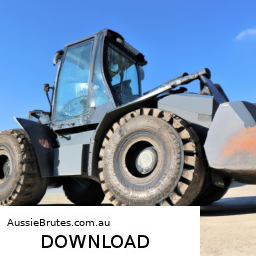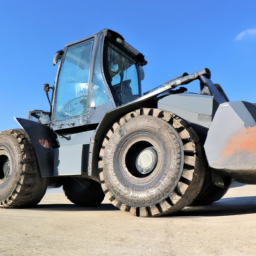
Replacing the suspension dampers on a Hyundai Wheel Loader HL770-7A requires careful planning, the right tools, and a detailed understanding of the components involved. click here for more details on the download manual…..
- HYUNDAI WHEEL LOADER HL770-7; HL770-7A; HL770-9; 11LB-30361 CHARGED AIR COOLER 11LB30361 hyundaiconstructionparts #wheelloaderparts #heavyradiators #hyundairadiators #spareparts #stoparts #sorsbrand #sorsparts …
Below is a comprehensive guide outlining the process along with descriptions of each component.
### Components Involved:
1. **Suspension Dampers (Shock Absorbers):**
– These are the primary components of the suspension system that absorb shock and reduce the oscillation of the loader during operation.
2. **Mounting Brackets:**
– These attach the dampers to the frame of the wheel loader and the axle. They provide stability and secure the dampers in place.
3. **Bushings:**
– Rubber or polyurethane components that provide cushioning between the damper and the mounting points, allowing for some flex while maintaining stability.
4. **Bolts and Nuts:**
– Fasteners that secure the dampers and mounting brackets to the wheel loader. Ensure you have the appropriate sizes and grades.
5. **Tools Required:**
– Wrenches (metric sizes)
– Socket set
– Torque wrench
– Hydraulic jack
– Jack stands
– Pliers
– Screwdriver
– Hammer (if necessary for stubborn components)
– Safety goggles and gloves
### Step-by-Step replacement Process:
#### 1. Preparation:
– **Safety First:** Ensure the loader is on a stable surface. Engage the parking brake and turn off the engine.
– **Wear Safety Gear:** Put on safety goggles and gloves to protect yourself.
#### 2. Lift the Loader:
– **Use a Hydraulic Jack:** Position the hydraulic jack under the appropriate frame points and lift the loader until the wheels are off the ground.
– **Secure with Jack Stands:** Place jack stands under the frame to ensure the loader remains stable while you work.
#### 3. Locate the Dampers:
– **Identify the Suspension Dampers:** The dampers are typically mounted vertically at the rear of the loader, attached between the frame and the axle.
#### 4. Remove the Old Dampers:
– **Inspect the Mounting Points:** Check the condition of the mounting brackets and bushings before removal.
– **Unfasten Bolts:** Using the appropriate wrench or socket, remove the bolts securing the damper to the mounting brackets. There may be two bolts per damper; one at the top and one at the bottom.
– **Remove the Damper:** Carefully pull the damper out of its mounting position. If it’s stuck, gently tap it with a hammer to loosen it.
#### 5. Install New Dampers:
– **Prepare New Dampers:** Before installation, check the new dampers for any defects or damage.
– **Position the New Damper:** Align the new damper with the mounting brackets. Ensure the bushings are in place if applicable.
– **Secure with Bolts:** Insert the bolts through the damper and into the mounting brackets. Hand-tighten them first to ensure proper alignment.
#### 6. Torque the Bolts:
– **Use a Torque Wrench:** Refer to the Hyundai service manual for the specific torque specifications for the dampers. Tighten the bolts to the specified torque to ensure a secure fit.
#### 7. Repeat for All Dampers:
– **Follow Steps 4 to 6:** If your wheel loader has multiple dampers, repeat the removal and installation process for each one.
and installation process for each one.
#### 8. Lower the Loader:
– **Remove Jack Stands:** Once all dampers are replaced and secured, carefully remove the jack stands.
– **Lower the Loader:** Use the hydraulic jack to lower the loader back to the ground.
#### 9. Final Inspection:
– **Check for proper Installation:** Inspect all bolts and connections to ensure everything is secure.
– **Test the Loader:** After the installation, perform a short test operation of the loader to ensure that it operates smoothly and the dampers are functioning correctly.
### Conclusion:
Replacing the suspension dampers on a Hyundai Wheel Loader HL770-7A is a straightforward process if you follow the steps carefully and use the correct tools. Regular maintenance of the suspension dampers is crucial for ensuring the loader’s performance and longevity. Always consult the manufacturer’s service manual for specific details and torque specifications related to your model.
The radiator shroud is a crucial component of a vehicle’s cooling system, designed primarily to enhance the efficiency of the radiator by directing airflow. Typically made from plastic or composite materials, the shroud encases the radiator, creating a channel that helps to optimize the flow of air through the cooling fins. This design ensures that the maximum amount of air passes through the radiator, which is essential for dissipating heat generated by the engine.
In many vehicles, the radiator shroud is an integral part of the cooling system’s overall architecture. By facilitating improved airflow, it significantly contributes to maintaining optimal engine temperatures, preventing overheating, and ensuring that the engine operates efficiently. Without a properly functioning shroud, air may flow around the radiator instead of through it, reducing the cooling system’s effectiveness and potentially leading to engine damage.
Additionally, the radiator shroud often houses other elements, such as electric fans, which are crucial for providing additional cooling, especially when the vehicle is stationary or moving at low speeds. The shroud also plays a role in noise reduction by minimizing the sound produced by the cooling fans. Overall, the radiator shroud is a vital component that supports engine performance, longevity, and reliability by ensuring the cooling system operates at peak efficiency.